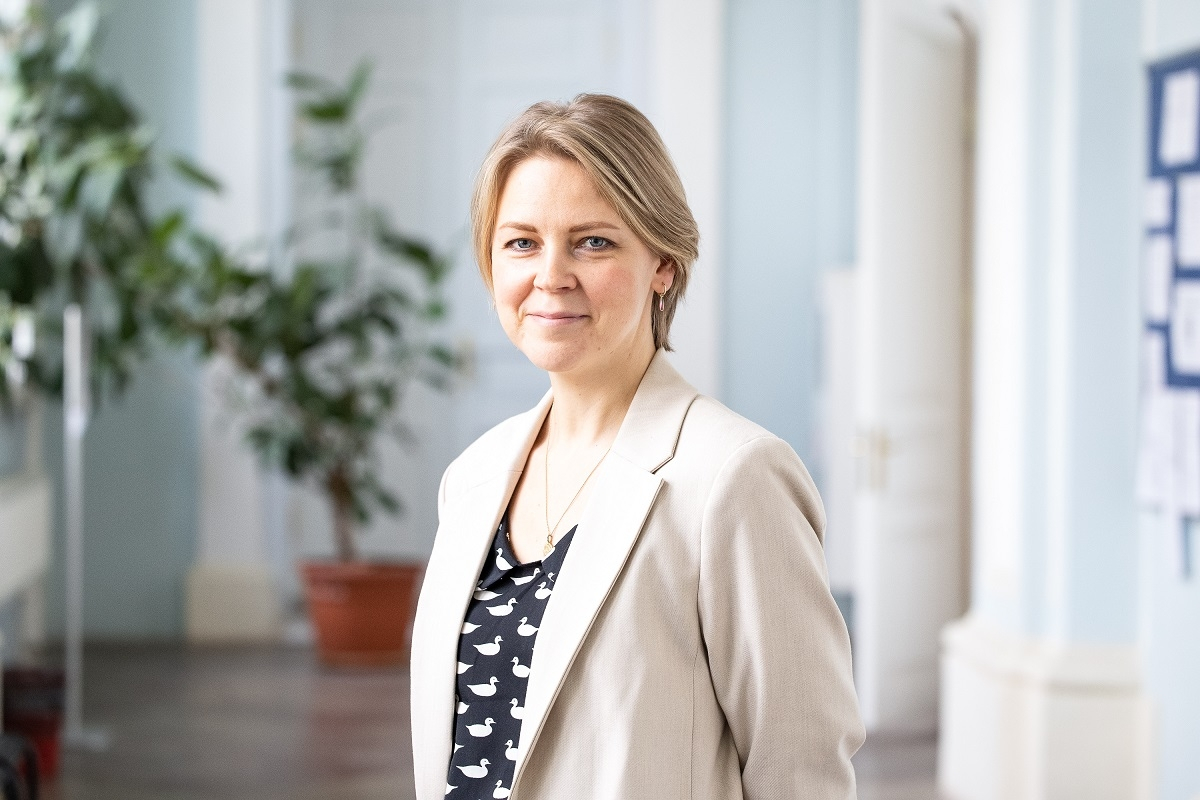Sociologists from St Petersburg University outline reasons that might lead a child to suicidal thoughts

Veronika Odinokova is a sociologist and a researcher at St Petersburg University. She has explained at the round table "Suicide among minors" what parents and teachers need to pay attention to in order to stop destructive actions by children and teenagers in time.
The expert stressed that usually a combination of factors leads to suicide attempts. One of them is health problems such as diabetes, bronchial asthma, HIV, epilepsy or disability. ‘This causes feelings of helplessness and attempts to escape from one’s body,’ explained the sociologist.
The event was organised with the support of the Public Council under the Main Directorate of the Ministry of Internal Affairs for St Petersburg and the Leningrad Region at the Centre for Patriotic, Volunteer, Educational and Leisure Programmes "Molodezhnyi".
Additionally, mental health problems are one of the dominating risk factors. According to researchers, the percentage of minors who commit suicide and have a mental disorder ranges from 10% to 90%. This is due to the fact that not all children with mental health problems have a confirmed diagnosis or are seen by a doctor. According to sociologists and psychologists, an increased risk of suicide is in adolescents with a depressive disorder, as well as in those families with a clinical record of such illnesses. It is possible to remove a child from the risk group − timely qualified mental health treatment can help in such situations.
Some children and young people are particularly vulnerable. Personality and psychological traits such as impulsivity, aggressiveness, high levels of perfectionism in the face of failures do not affect the risk of suicide directly, but often lead to a minor’s inability to adapt to stressful situations.
Another important factor is so-called tunnel thinking, or black and white thinking. The child sees the problem as unsolvable and views things in a negative light. The situations that a child faces often cause him or her to feel that life is without prospects. ‘This is a target for psychologists. It is important to help the child see alternatives, ways out of the stressful situation and give support,’ stressed Veronika Odinokova.
To identify suicide risk in a timely manner, it is important to monitor adolescent behaviour and to be in contact with them.
The emotional state of children planning destructive actions often changes. Mood swings, changes in sleep patterns, appetite, appearance, shrinking into themselves, "going off the deep end", taking risks or hurting themselves are common in children’s behaviour.
Scholars say that adolescents make it clear, either expressly or by implication, to family or friends before they commit suicide that they have this intention. Parents, teachers and acquaintances should pay attention to such signs, not be afraid to start conversations and seek professional advice. Particular attention should be paid to children who have experienced stressful situations: death of their loved ones; domestic or sexual abuse; family conflicts; bullying at school; breakdown of a romantic relationship; and teenage pregnancy. These children should not be left without professional support and attention.
Experts urge you to remember: suicide does not happen suddenly. There are several stages before a child performs active actions that unfortunately lead to death. First, there are thoughts of lack of value in life, then passive suicidal thoughts, then intentions, and plans. This is why it is so important for adults to: create a trusting, safe environment both at home and at school; and develop the sensitivity to spot a teenager who needs help.
A child is ambivalent about the idea of committing suicide. Children do not want to die. They do not want to go on living the way they do. And this is where they need help.
Veronika Odinokova, a sociologist and a researcher at St Petersburg University
In recent years, it has been widely believed that suicidal thoughts among minors are fuelled by the Internet. Scholars do not agree with such an unambiguous interpretation. According to them, one can nowadays find a lot of information online that, on the contrary, can help a child get through a difficult period and seek advice. In addition to telephone suicide and crisis hot lines in Russia, there are also correspondence lines, which can be even easier for children to access.
At the same time, experts note the negative influence of the media on the situation. According to sociologists, the media covers each suicide case too actively, colouring it with details of the victims’ personal lives and the search for the guilty. Such stories only attract the attention of minors. The Federal Service for Supervision of Communications, Information Technology and Mass Media (Roskomnadzor) has issued recommendations on coverage of suicide for journalists. Scholars recommend that they heed these guidelines. This can really help in suicide prevention.
For reference: in 2018, St Petersburg University, together with the Investigative Committee of Russia, carried out a study of destructive behaviour among teenagers. They analysed: the materials collected by the Investigative Committee as part of investigations into incidents of this kind; and aspects of suicidal behaviour in children that may have been linked to the use of social media. The researchers concluded at that time that not a single suicide case had been caused by the influence of "mentors" or administrators of "death groups" on social media. The cause of the suicides was bullying, conflicts in the family or school, substance abuse, self-esteem disorders and a loss of conception of the future.

